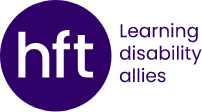How to get the right support from your local authority: a guide to the Care Act 2014 and other laws
Who is this guide for?
This guide is for family carers of a learning disabled adult who want to know more about their rights under the Care Act.
What is this guide about?
The main focus of this guide is on the Care Act 2014 (and the accompanying Care and Support Statutory Guidance). We explain how you can use it in conversations with your local authority. We have also included a section that outlines the principles of the Mental Capacity Act 2005. There are examples throughout of how these laws can be used in practice, and we have referenced links to useful resources.
We haven’t covered all aspects of the Care Act, but have included what we think are the most important aspects for family carers to be aware of.
Contents
We’ve kept in mind that some family carers reading this guide may already have a problem they’re looking to solve. Knowing where to start can be daunting, so we’ve included general information in the first chapter on how to challenge when things aren’t right.
The rest of the content will help you advocate for yours and your relative’s rights under the Care Act when communicating with the local authority. It may also make you aware of rights that you didn’t realise you both have.
-
Wellbeing
-
Supporting people at an early stage (preventing needs for care and support)
-
Information and advice
-
Independent advocacy
-
The Mental Capacity Act 2005
-
Care Act assessment for learning disabled adults
-
The care and support plan for learning disabled adults
-
Personal budgets and financial assessments for learning disabled adults
-
The review process for learning disabled adults
-
Carer’s assessment, and support plan
-
Housing and choice for learning disabled adults
Why did we write this guide?
We recognise that there is a lot of information already available about the Care Act, but feel that a lot of it is targeted at carers in general. So we wanted to create a guide that is specifically for family carers who have a learning disabled relative.






